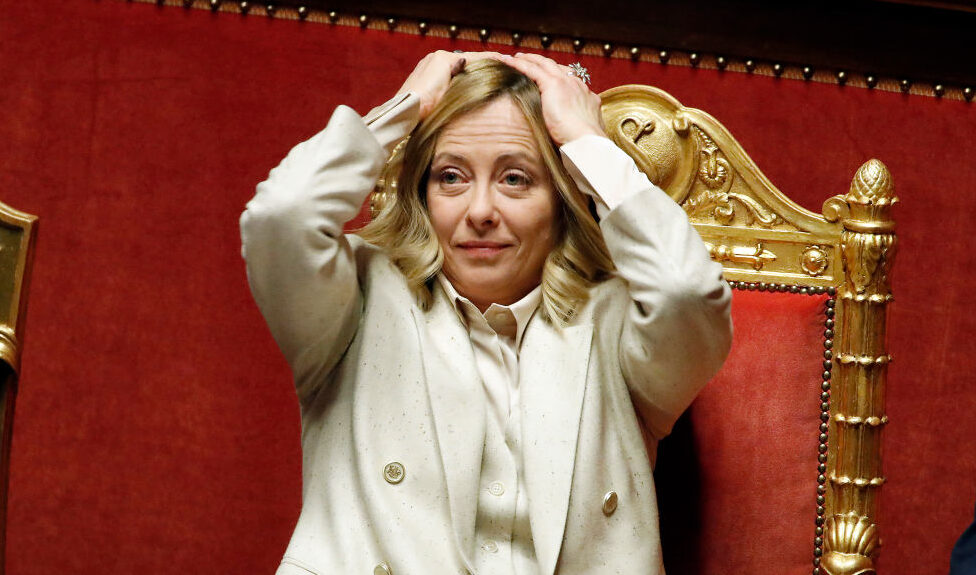Unsurprisingly, The Leopard shocked Lampedusa’s aristocratic relatives when it came out, and outraged wider opinion in Sicily. The book was clearly an indictment of the island and its history. Leonardo Sciascia, then Sicily’s greatest living writer, bitterly attacked it on those grounds. If he later recanted, then only because he had come to agree with Lampedusa.
The author did not believe that things did not change. They plainly did, even in the novel. The Prince’s power, and that of his class, slips away in myriad ways. He himself acknowledges in a famous exchange with his confessor, Father Pirrone, that the nobility has merely secured a stay of execution, not developed a viable strategy for long-term survival. In due course, Mussolini plunged the nation into a catastrophic war, which Lampedusa alludes to only in passing, in an aside about the Pittsburgh-made American bomb which later shatters the palace in which the ball took place. When Lampedusa was writing in the Fifties, the latest conquerors of Sicily had been the Anglo-Americans who landed on the island in 1943, booted out the Nazis, and blasted his childhood home in Palermo to pieces.
Europe today is Italy yesterday (and today). The continent, Henry Kissinger lamented back in 2019 at a policy event, had “checked out” and was making neither a sufficient financial nor an adequate intellectual contribution to the common defence. If it persisted in this stance, Kissinger also warned, the continent would end up as a “strategic appendage of Eurasia”, of the Sino-Russian cartel — in effect a colony.
Kissinger could easily have expanded the indictment. At the time of his remarks, the European Union was attempting to run a common currency without a common state or even a common economic policy, causing a sovereign debt crisis which nearly destroyed the euro. It had created a passportless common travel area without properly securing its external border, resulting in an unprecedented migration crisis. Meanwhile, the continent was rapidly losing its economic edge to the Indo-Pacific. In the field of security, Europe was not only failing to mobilise against Vladimir Putin’s ambitions but actually deepening its dependency on Russian energy through the construction of a second pipeline through the Baltic Sea.
“Like The Leopard’s Sicilians they prefer the rest of oblivion to the effort of action.”
Since then, the situation has deteriorated further. Even Putin’s full-scale attack on Ukraine, though it produced the biggest European response to date, did not lead to a sea change. In fact, some European countries like Germany are beginning to retreat from the strong stances they adopted at the outset. Olaf Scholz’s much-heralded Zeitenwende has thus joined the long list of turning-points at which German (and European) history failed to turn. Scholz’s government wanted to change things just enough so they could stay the same. In security terms, most of Europe is still little more than an American colony, completely dependent on US military protection. But as the war in Ukraine reaches its denouement and President-elect Donald Trump threatens to withdraw, or at least re-negotiate, the American defence umbrella, the Continent needs to wake from its deep Sicilian slumber.
If Europeans really want things to remain halfway the same, in other words to maintain their standard of living, security and territorial integrity, they will have to make some very far-reaching changes. As British and American observers, including the present author, have repeatedly pointed out there are basically two options. Europe can form a full political union rallying the entire resources of the Continent on the lines of the United Kingdom or the United States. Alternatively, the Continent can re-configure itself as a looser confederation of sovereign nation-states each of which is truly committed to its own and the collective defence through Nato. So far, Europeans have done neither, not because anyone is stopping them, but because like The Leopard’s Sicilians they prefer the rest of oblivion to the effort of action.
Most likely, neither the election of Donald Trump, nor the dire situation in Ukraine will actually rouse Europe from its torpor. As Russia advances, Europeans will recite interminable rosaries about the need to “step up”, but they will not undertake the necessary fundamental reform. Europe’s vanity is stronger than its sense of strategic squalor. Like Lampedusa’s Sicily, the Continent thinks itself already perfect, and certainly far superior to its Anglo-American lecturers. But the idea that Europeans just have to change a little so that things stay the same is an illusion. While the continent sleeps, things are changing, and will continue to change, just not for the better.
